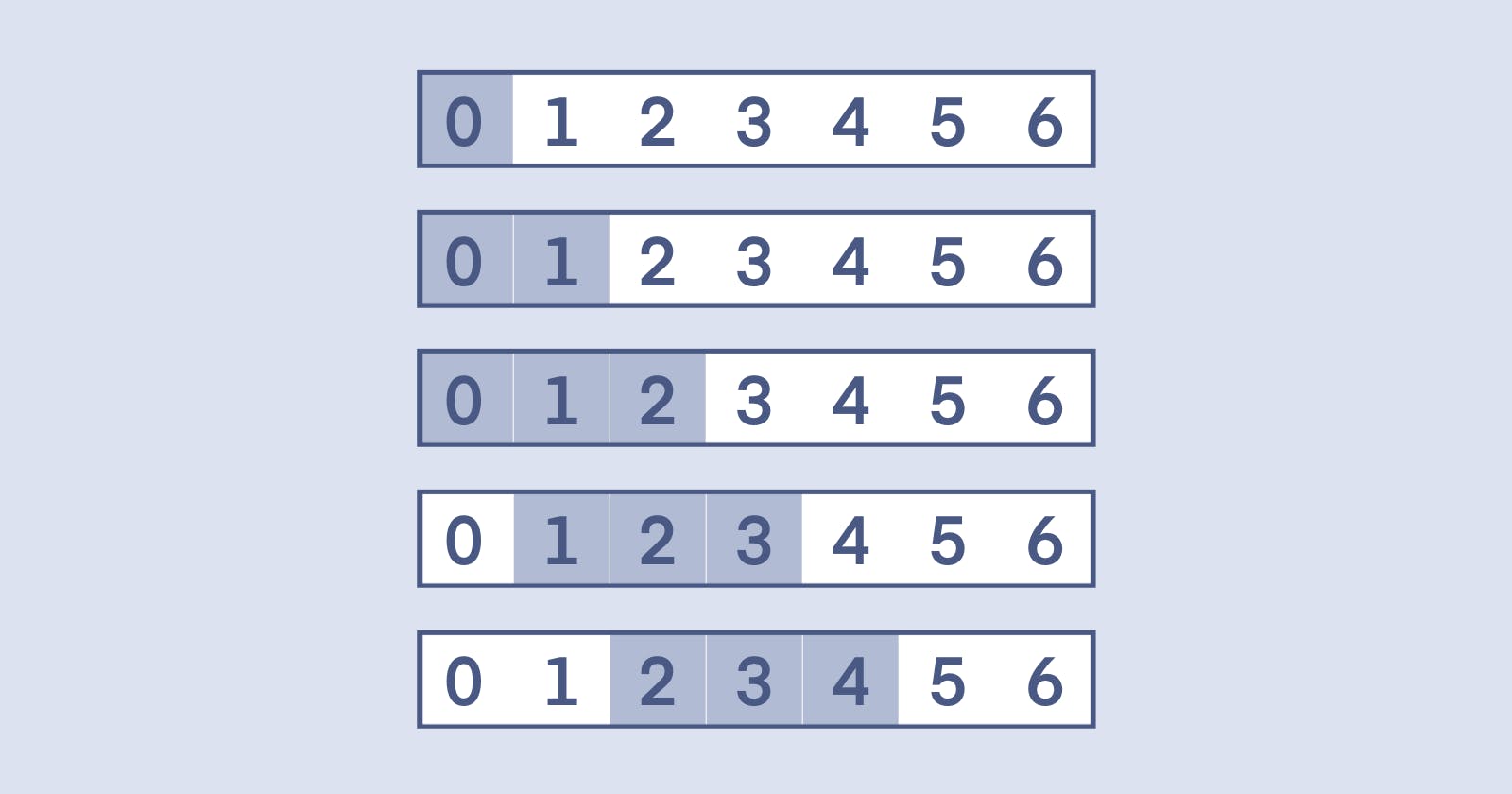The Sliding Window is a type of algorithm that helps us solve problems with fixed windows. It is used to optimize our programs, reducing the need for extra loops by reusing the result of the previous step in the next step. The brute-force approach to many problems that can be solved with this algorithm would be to use nested loops, which, generally speaking, should be avoided.
Leetcode Example
Leetcode Challenge: 1456. Maximum Number of Vowels in a Substring of Given Length
In this challenge, we are given a string s and an integer k, and asked to find a substring of length k such that it contains the most vowels out of any other substring of the same length. We must then return that number of vowels.
Some quick pseudo-code:
We declare some variables:
vowelsto contain our vowels;window_startto represent the starting index of our window;num_vowelsto contain an array of the number of vowels per substring; andcurrent_vowelsto keep track of how many vowels are in the current substringWe iterate through the string, updating
current_vowelsas neededIf the length of the window reaches
k, we begin reducingcurrent_vowelsas needed (to ignore vowels outside the window) and incrementwindow_startIf the length of the window is
k, we append the number of vowels in that substring tonum_vowelsAfter the loop is complete, we return the maximum value of the
num_vowelsarray
See the image below for a visualization of how we'll be "sliding" through the input string! In this case, len(s) = 7 and k = 3. Every time we encounter a vowel, we increment current_vowels. Once we reach index 3, we first check if the value of s[window_start] is a vowel; if it is, we decrement current_vowels. Then, we increment the value of window_start.

See the code below for an implementation of this algorithm in Python!
class Solution:
def maxVowels(self, s: str, k: int) -> int:
vowels = 'aeiou'
num_vowels = []
window_start = 0
current_vowels = 0
for i in range(len(s)):
if s[i] in vowels:
current_vowels += 1
if i >= k-1:
num_vowels.append(current_vowels)
if s[window_start] in vowels:
current_vowels -= 1
window_start += 1
i += 1
return max(num_vowels)
I hope you found this helpful!
